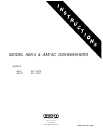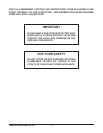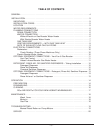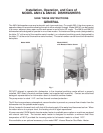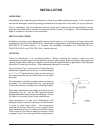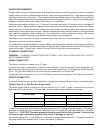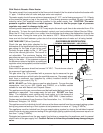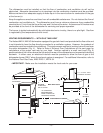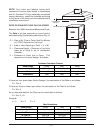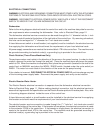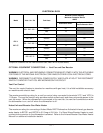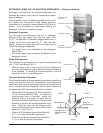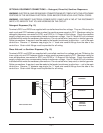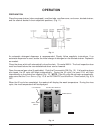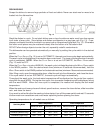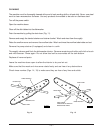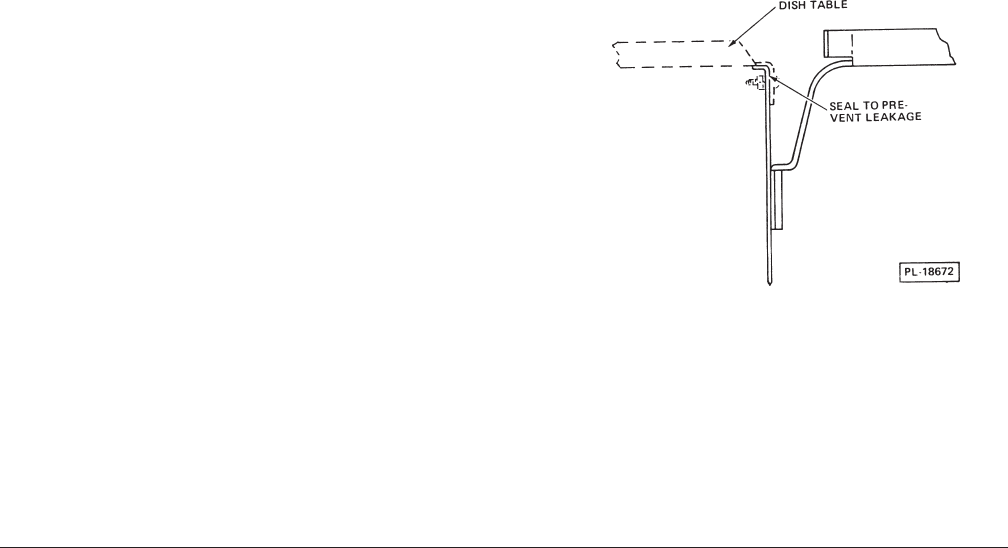
– 5 –
Fig. 2
INSTALLATION
UNPACKING
Immediately after unpacking the dishwasher, check for possible shipping damage. If this machine is
found to be damaged, save the packaging material and contact the carrier within 15 days of delivery.
Prior to installation, test the electrical service to make sure it agrees with the specifications on the
machine data plate which includes the optional electric booster, if equipped. The dishwasher data
plate is located on the side of the control box.
INSTALLATION CODES
Installation must be in accordance with state and local codes, or in the absence of local codes, with
the National Fuel Gas Code, ANSI Z223.1 (latest edition) if applicable, and the National Electrical Code
ANSI/NFPA 70 (latest edition). In Canada, the installation standards are: CAN/CGA B149.1,
CAN/CGA B149.2, and CSA C22.2 No.1 (latest editions).
LOCATION
Place the dishwasher in its operating location. Before finalizing the location, make sure that
consideration has been given for the electrical conduit, water supply, drain connection, gas supply and
venting (if applicable), tabling (if needed), chemical feeder replenishment (if applicable), and adequate
clearance for opening the doors. Allow adequate clearance for service.
The control box (Fig. 1) is mounted 4
5
/8" below the dish
table when shipped from the factory. It can be changed
to 11
1
/8" or
5
/8" below the dish table by removing the
two mounting bolts and reinstalling them in the holes
provided.
The dishwasher must be level before any connections
are made. Turn the threaded feet (Fig. 1) as required
to level the machine and adjust to the desired height.
Dish tables should be turned down and fitted into the
dishwasher (Fig. 2). Use an NSF approved sealer
between table and tank lip to prevent leakage. Fasten
the tables to the tank lip with truss head screws.
High-temperature or gas heat dishwashers will
probably require a hood or vent over the dishwasher
in order to meet local codes. Low-temperature
chemical sanitizing machines or low usage electric
heat dishwashers may not require individual venting
of the machine if the room is amply exhausted. Refer
to pages 8 and 9 for venting and hood requirements.



